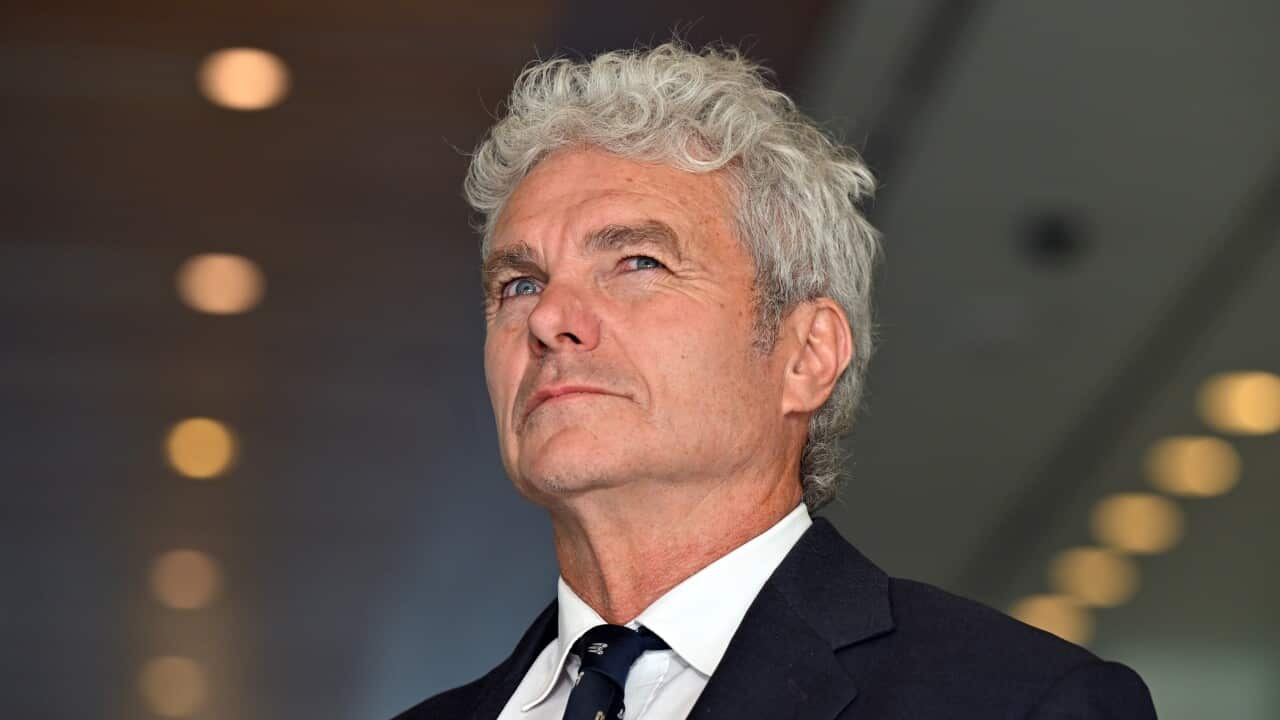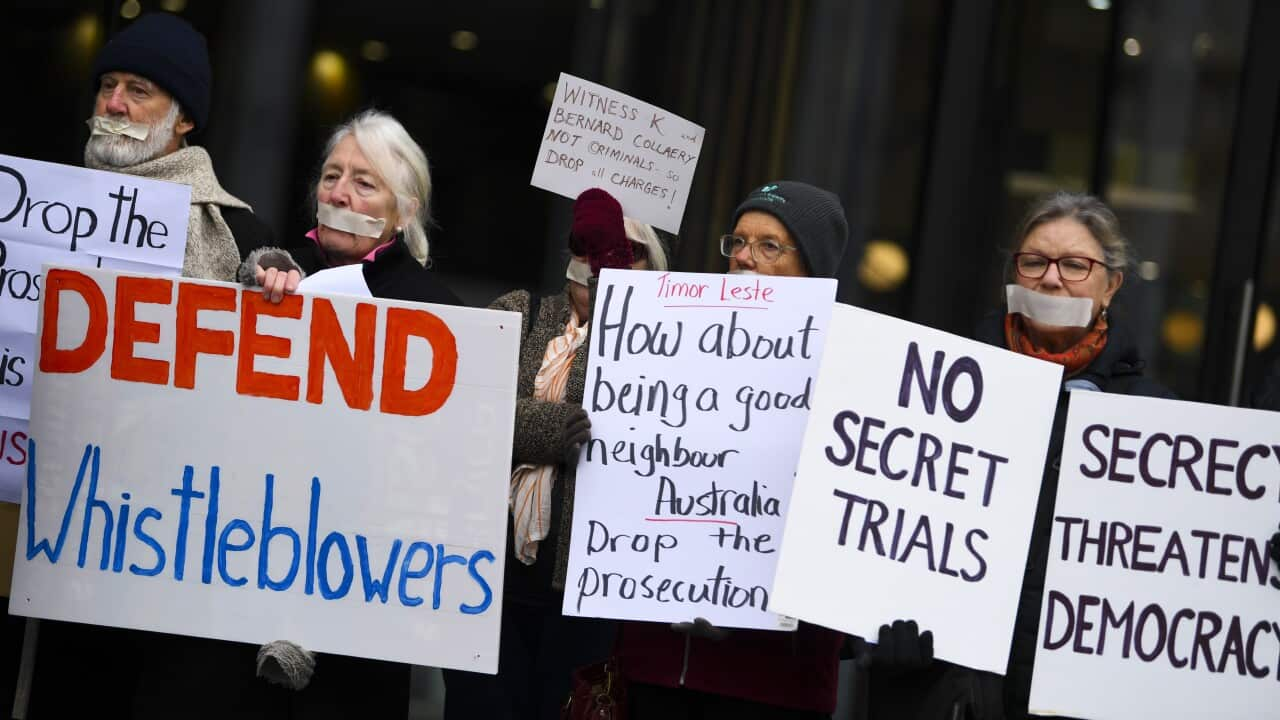Key Points
- David McBride allegedly leaked hundreds of documents detailing alleged war crimes in Afghanistan and faces a life sentence in prison.
- A subsequent report revealed allegations that Australian special forces killed 39 civilians and prisoners.
- Whistleblower advocates argue that McBride should be protected in the name of public interest.
The trial of a former army lawyer who allegedly revealed information about alleged Australian war crimes in Afghanistan, has started.
David McBride, who served in the British and Australian armies, will front a jury at the ACT Supreme Court for the next three weeks, for allegedly leaking classified documents.
He is facing five charges, including theft of commonwealth property, breaching the Defence Act and unauthorised disclosure of information.
McBride will miss family but is 'prepared for jail' if found guilty
McBride told SBS News that he'll miss spending time with his two children most, as he prepares for the possibility of an unknown period behind bars.
"Sitting on the sofa with the kids, watching a movie and laughing and making dad jokes. I'll really miss that. By the time I get out they'll be adults," he told SBS' Anna Henderson.
"I'm prepared for jail; it's never been about avoiding jail for me.
"It is everybody's duty to enforce the law. I tried to enforce the law, I stood up for what I believe is right and I've taken the consequences."
The Sydney-born lawyer served two tours in Afghanistan as a military lawyer, in 2011 and 2013.
During these tours, he claims he became aware of what he describes as systemic issues within the Australian Defence Force (ADF).
McBride claims he initially raised concerns internally and with the federal police.
What did the leaked information reveal?
The leaked records revealed alleged war crimes committed by Australian soldiers during the war in Afghanistan, with the ABC using them to create the Afghan Files report in 2017.
Three years later, the ADF inspector-general reviewed McBride's claims ina four-year investigation into alleged misconduct by Australian special forces in Afghanistan.
It found credible information that members of Australian special forces soldiers were involved in the murder of 39 unarmed civilians and prisoners.

David McBride and his supporters have repeatedly tried to stop the trial going ahead, arguing the information was in the public interest. Source: AAP / Mick Tsikas
Whistleblower protections criticised
McBride now faces prosecution for allegedly leaking classified government documents.
He argues that the leaking of the material was in the public interest.
His lawyers and other groups, including the Human Rights Law Centre, repeatedly called on Attorney-General Mark Dreyfus to intervene and end the prosecution, to no avail.
In the Senate on Monday, a Greens motion calling on Dreyfus to end the prosecution was defeated.

McBride briefly spoke to supporters outside the ACT Supreme Court on Monday. Source: AAP / Lukas Coch
"Today I serve my country", McBride said before he went inside.
In September, 70 organisations and individuals signed a letter, published by Nine Newspapers, urging whistleblower protection reform.
The Human Rights Law Centre has previously called on the government to drop its cases against McBride, Richard Boyle and
A spokesman for the Attorney General responded to inquiries from SBS News saying: "The Attorney-General’s power to discontinue proceedings is reserved for very unusual and exceptional circumstances.
"As Mr McBride’s proceedings remain ongoing, it is inappropriate to comment further on the particulars of their matters."











